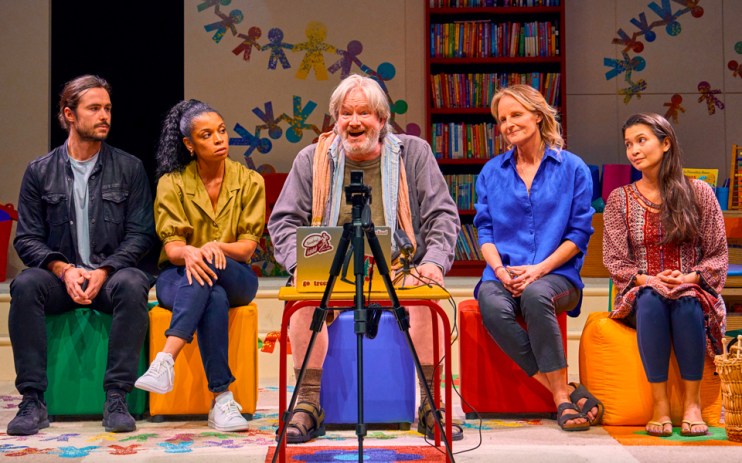Eureka Day Review: Helen Hunt shines in culture wars drama

When playwrights take aim at the culture wars, it’s usually those on the right they have in their sights. But Jonathan Spector’s barbs point towards the liberal left and the ludicrous situations that can arise when political correctness really does go mad.
Eureka Day takes place in the titular primary school, a progressive Californian institution – a kind of boutique Steiner school – whose principles of inclusivity and non-judgment are the kind of thing that keeps Jordan Peterson awake at night.
We’re introduced to the school directors as they agonise over whether to include “transracial adoptee” on an online enrolment form’s list of ethniticies; obnoxious tech-bro Eli (Ben Schnetzer) and long-serving teacher Suzanne (Helen Hunt) tie themselves in knots trying to justify their positions while founder Don (Mark McKinney) – wearing a fetching shorts, socks and sandals combo – remains firmly on the fence, being of the mind that there’s no such thing as a bad idea.
This concept – accepting all viewpoints, no matter how nonsensical – is at the heart of Spector’s play, and what starts as harmless absurdity soon becomes something more sinister when a child tests positive for mumps.
It turns out that half the pupils, including the children of at least two directors, are unvaccinated, causing the disease to spread through the school population. Suzanne in particular turns out to be a vehement anti-vaxxer, and believes her views should be respected despite the clear and present risk to public health.
While this all sounds like a direct reaction to Covid, the play actually predates the pandemic, having first opened in the US in 2018. It makes scenes such as a virtual community meeting, in which Don’s well-meaning announcement is overshadowed by increasingly vitriolic (and laugh-out-loud funny) chat messages – projected above the stage – feel incredibly prescient.
The play loses momentum after the interval, however, abandoning the satire and instead focusing on humanising the caricatures it created in the first half. Hunt does an excellent job of inviting sympathy for Suzanne, while Susan Kelechi Watson comes into her own as Carina, a black parent new to the school board who becomes the de facto voice of reason in this lamentable group.
But when it’s so clear that one of them is right and the other wrong, there’s never very much at stake, and despite the wonderful performances, Eureka Day ends up feeling a little flat.
